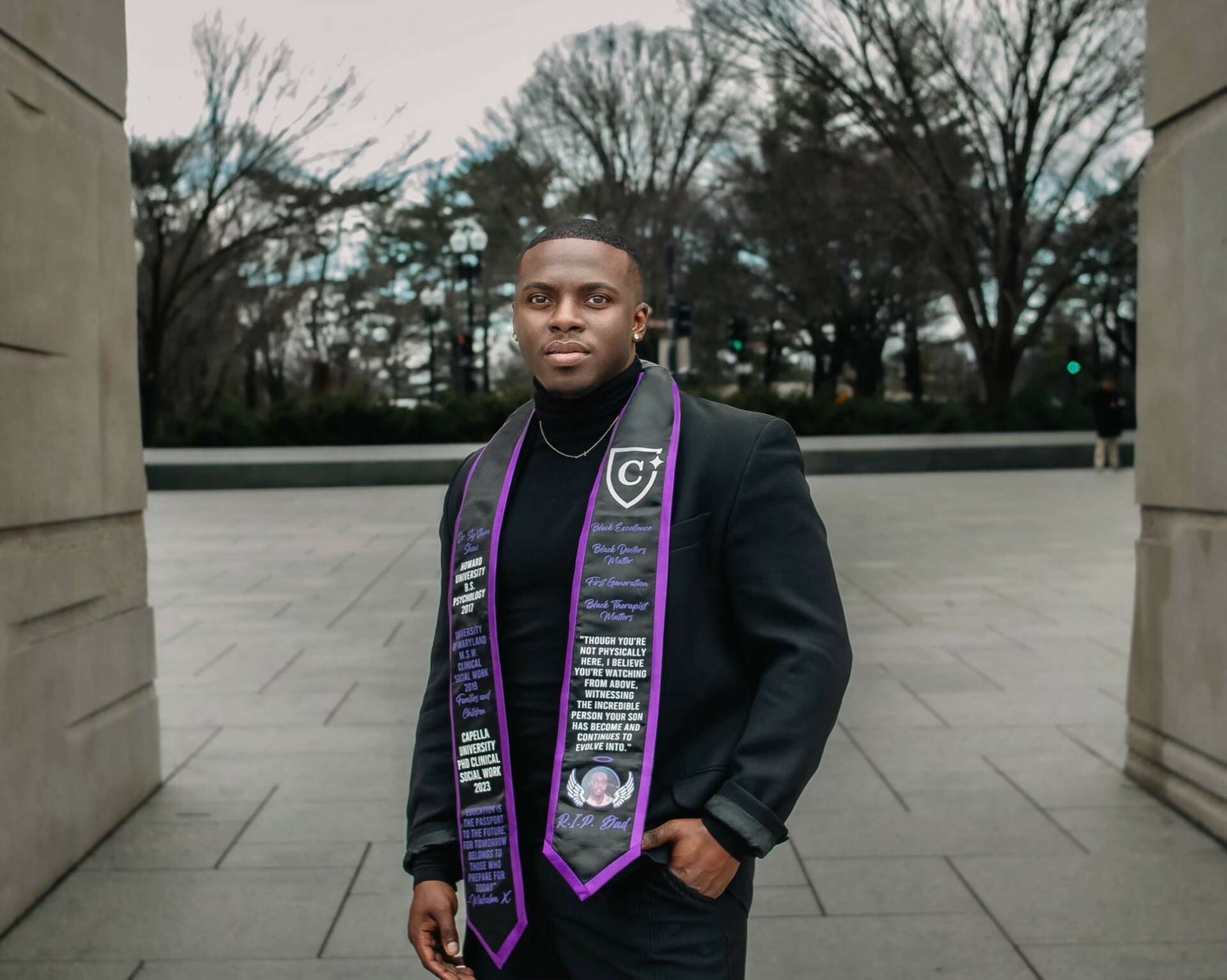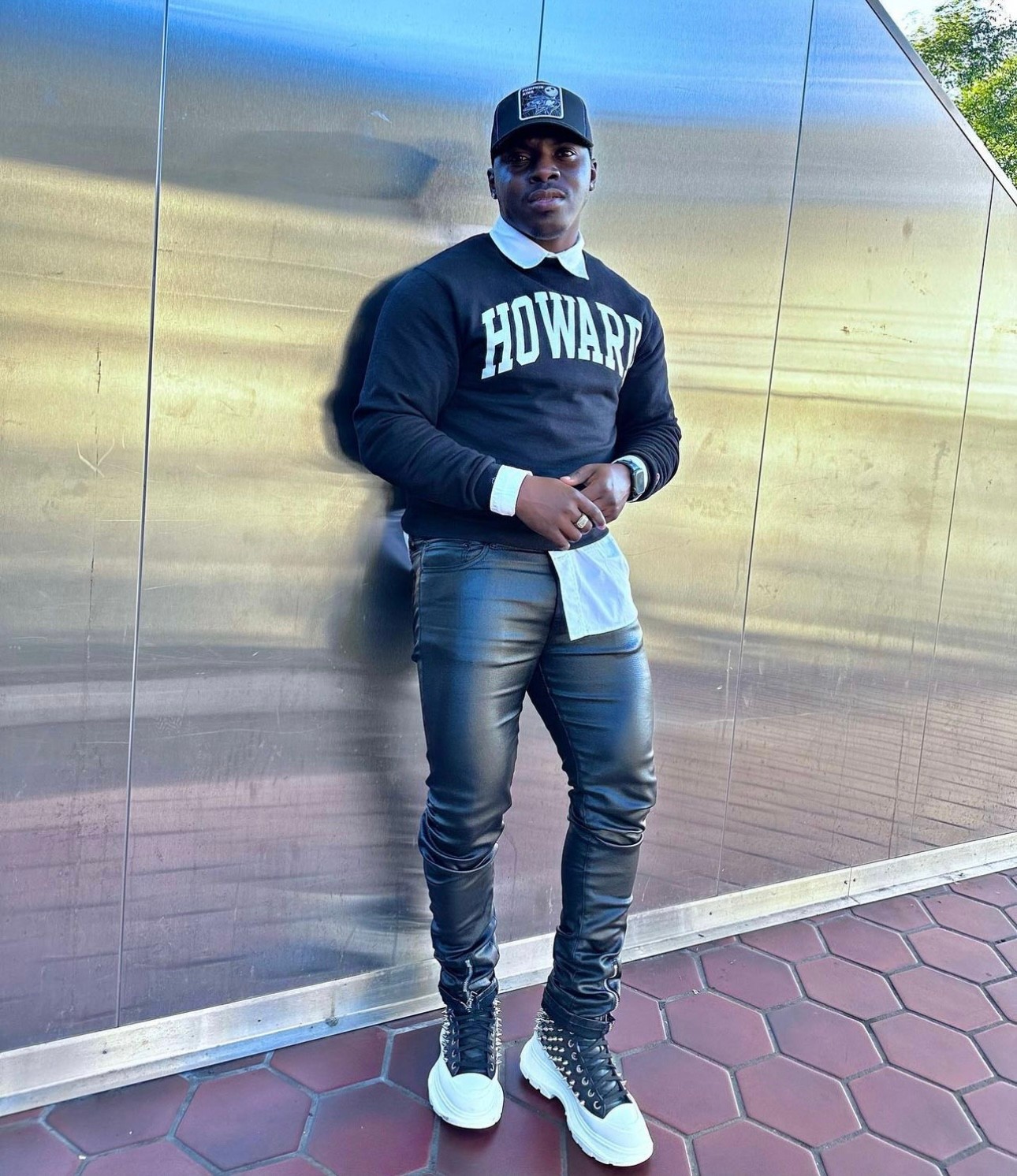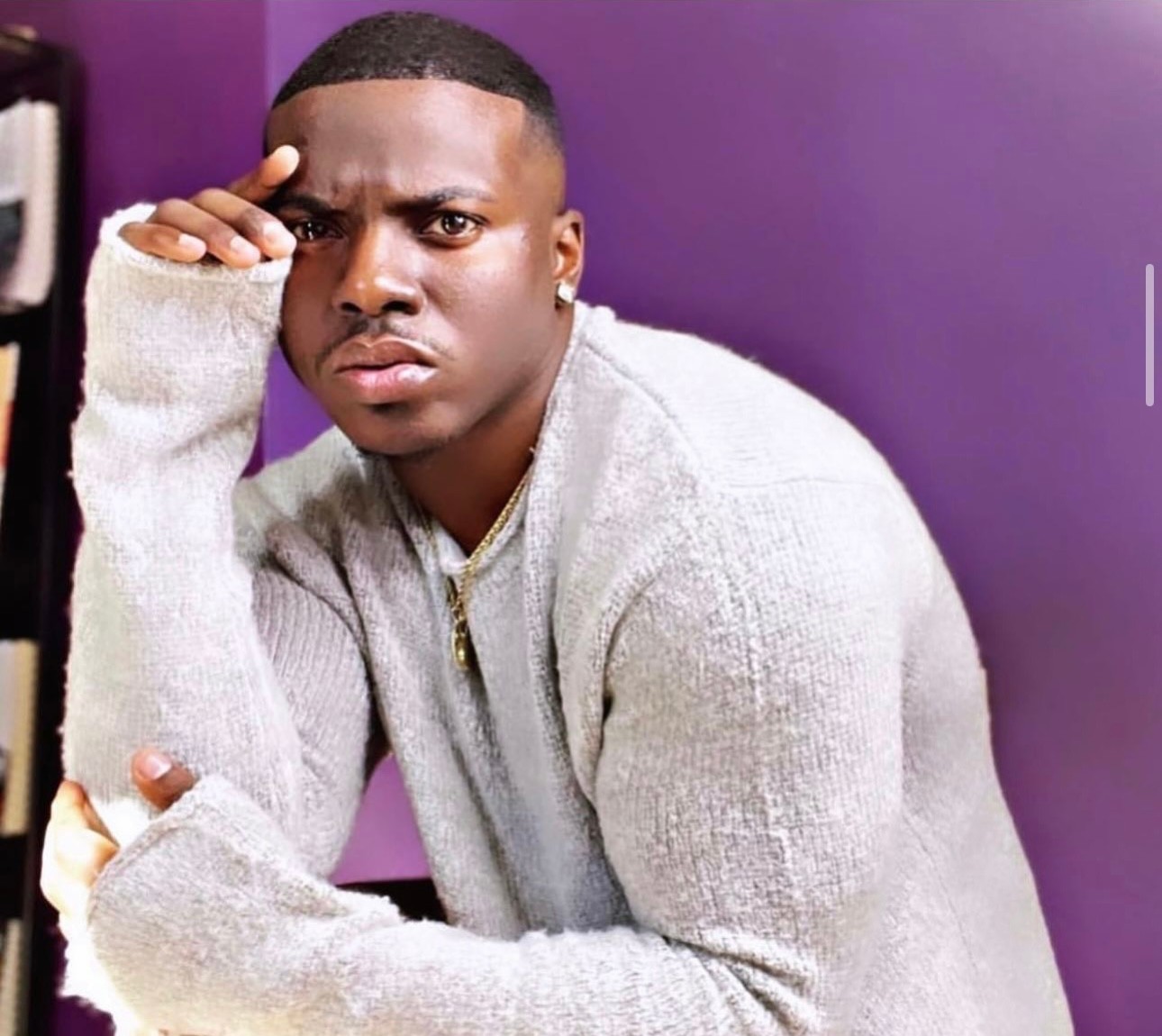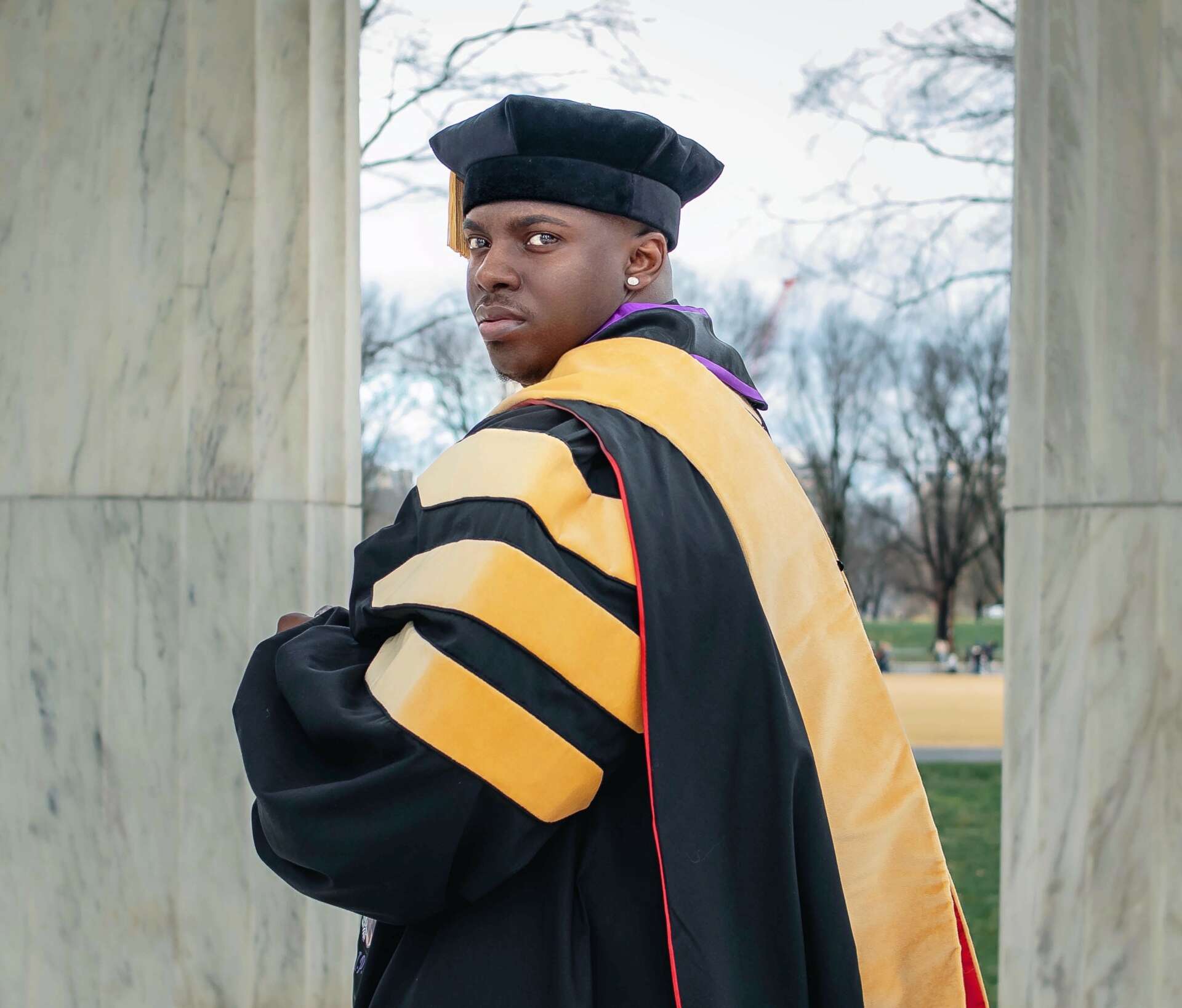We were lucky to catch up with Dr. Sy’Quon Shaw recently and have shared our conversation below.
Dr. Sy’Quon, appreciate you joining us today. We’d love to hear the backstory behind a risk you’ve taken – whether big or small, walk us through what it was like and how it ultimately turned out.
I embody the role of the first domino, understanding that to embrace risk, one must be prepared for that first fall. I like to think that my life to a book often judged solely by its cover. However, as one delves into its pages, one discovers layers beyond what meets the eye. My venture into risk-taking commenced when I commenced therapy in 2014.
At that time, outwardly, my life seemed “golden” to many, yet it marked one of the darkest periods beneath the surface. My therapist unearthed a side of me I did not believe existed. Subsequently, I chose to share personal life events and narratives on social media, addressing family, friends, and even strangers, to inspire, uplift, and motivate others. Despite the inherent risks of revealing personal stories in such a public manner, I resolved to be that inaugural domino.
The stories I shared have resonated with many, which is evident in the numerous daily responses, whether through comments on Facebook statuses or private messages. People expressed how my experiences motivated, encouraged, or facilitated their own openness about their struggles. Thus, I view myself as the catalyst, the first domino that sets a chain of positive impact in motion.
Taking risks in life is essential for growth and fulfillment. It propels us beyond our comfort zones, unlocking new opportunities, experiences, and potentials. Risks challenge us to discover our strengths, overcome fears, and embrace change. They are the catalysts for innovation, resilience, and the path to achieving our true potential. Without risks, we limit our possibilities and remain stagnant. Embrace the unknown, for it is often where the most rewarding aspects of life unfold.

As always, we appreciate you sharing your insights and we’ve got a few more questions for you, but before we get to all of that can you take a minute to introduce yourself and give our readers some of your back background and context?
I currently serve as the Vice President of The Capstone Group, a non-profit organization. Additionally, I am a speaker addressing mental health topics and a Mental Health Therapist specializing in working with children and families. Transitioning from the passenger seat as a client to the driver’s seat as a therapist has been a long-standing aspiration, heightened by my personal experience in therapy during my undergraduate years at Howard University.
My awareness of therapy blossomed during my educational journey at Howard University, motivating me to make a difference, impact lives, and normalize mental health, especially within the Black community. As a Black man, I recognize the rarity of seeking mental health treatment within our community, influenced by factors such as stigma, societal norms, and concerns about perception.
My research focus, as a recent doctoral graduate, delves into understanding the role of stigma in the lives of Black men, hindering their access to mental health services. This exploration aims to uncover the reasons behind this reluctance. Moving forward, my goal is to continue working towards destigmatizing mental health in the Black community, fostering ongoing conversations to promote understanding and support.
I take immense pride in achieving my doctorate degree in Clinical Social Work as of December 4, 2023. This journey has been one of the most challenging experiences I have ever undertaken, but it has also proven to be incredibly rewarding in terms of personal growth and learning. Being a first-generation college graduate and now the first Doctor in my family is a surreal and momentous achievement.
I am not only proud of myself, but my family shares in this pride, and my friends have been unwavering in their support since day one. This moment stands out as the pinnacle of my achievements, highlighting not only the academic success but also the perseverance and determination that led me to this point. The fact that I did not give up makes this accomplishment even more meaningful and serves as a source of inspiration for future endeavors.

Do you think you’d choose a different profession or specialty if you were starting now?
If given the chance to revisit my career choices, I would still choose the same profession. However, in terms of education, I would have made different decisions regarding my focus or field of study after completing my undergraduate degree in Psychology. Following my bachelor’s degree at Howard University, I encountered challenges with Psychology Statistics, creating hesitations about pursuing a master’s in Psychology where I would inevitably face the same course. Instead, I explored alternative paths to still pursue my passion for therapy.
Although I value the knowledge gained in my Master of Social Work program, looking back, I now realize that staying on the Psychology track, especially considering I eventually took Statistics in my doctoral program, might have been a more aligned choice. This reflection underscores the idea that attempting shortcuts in life due to fear often results in facing those same fears along the way.

What’s a lesson you had to unlearn and what’s the backstory?
One profound lesson I had to unlearn was the belief that a linear and predetermined path solely determines success. Growing up, I was ingrained with the idea that following a specific trajectory based on society’s perspective—completing high school, obtaining a college degree, securing a stable job—was the guaranteed route to success. The backstory behind this lesson traces back to the values instilled by my family and societal expectations.
From an early age, I was conditioned to view success through a narrow lens. The pressure to conform to societal norms and expectations led me to believe that any deviation from the prescribed path would result in failure. As a result, I pursued my education with a fixed mindset, adhering strictly to the conventional route without considering alternative possibilities.
It was not until I encountered personal and professional challenges that I began questioning this deeply ingrained lesson. Life threw unexpected curveballs, and I found myself at a crossroads where the traditional path needed to offer solutions. During these moments of uncertainty, I realized the need to unlearn the rigid concept of success.
The turning point came when I witnessed individuals who had achieved remarkable success through unconventional routes—entrepreneurs who found prosperity without a college degree and artists who flourished outside the confines of traditional careers. These stories challenged my preconceived notions and inspired a paradigm shift.
Unlearning the lesson required a deliberate effort to embrace the idea that success is subjective and multifaceted. It demanded a departure from the fear of deviating from the expected course and accepting that unconventional paths can lead to fulfillment and accomplishment. It required redefining success on my terms, acknowledging that it could be found in passion, resilience, and the pursuit of personal goals.
This journey of unlearning has been liberating. It has opened doors to exploration, creativity, and a more authentic version of success. I have come to appreciate that life’s journey is unique for each individual, and success is not a one-size-fits-all destination. The backstory of unlearning this lesson has been transformative, guiding me toward a more liberated and self-defined understanding of achievement.

Contact Info:
- Instagram: Mental Health IG: A_wareness19 Personal IG: Knightrises_24
Image Credits
Image Credits: Kollin Benson


